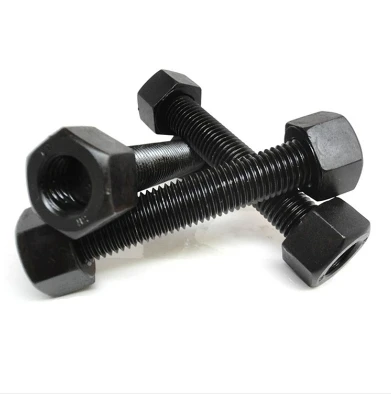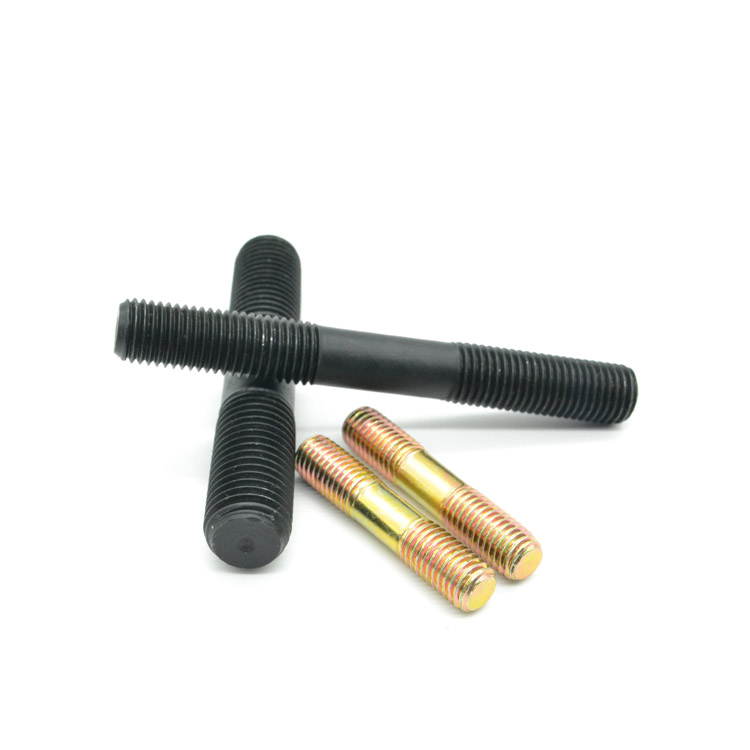m8 bolts
Jan . 21, 2025 05:58 Back to list
m8 bolts
In the world of construction and DIY projects, fasteners play a crucial role in ensuring the stability and safety of the assembled structures. M8 bolts, known for their versatility and strength, are a staple in many industries, and understanding their application can make a significant difference in the success of a project. This article delves into the unique qualities of M8 bolts, provides expert tips on their use, and underscores the importance of choosing the right bolt for your specific needs.
Furthermore, the thread pitch of M8 bolts is a vital specification that dictates the bolt's ability to hold structures together. A standard M8 bolt typically has a 1.25mm thread pitch, which is suitable for general applications. However, in specialized machinery where higher precision is required, opting for a fine thread pitch can provide an enhanced level of accuracy and fit. In the context of sustainability, selecting the right M8 bolt with a focus on longevity and reusability contributes to environmentally responsible construction practices. This consideration not only supports sustainability goals but also provides economic advantages over time as reusability reduces the need for constant replacements. From a safety perspective, sourcing M8 bolts from reputable manufacturers ensures compliance with industry standards and provides assurance of quality and reliability. Trustworthiness in material sourcing and production processes is fundamental to achieving the desired safety outcomes in any project. Ultimately, understanding the nuanced details of M8 bolts—from material and threading to torque and application—is instrumental in making informed decisions. Leveraging the expertise of industry professionals and aligning with authoritative guidelines further reinforces the importance of M8 bolts in ensuring the success and safety of construction and mechanical projects.

Furthermore, the thread pitch of M8 bolts is a vital specification that dictates the bolt's ability to hold structures together. A standard M8 bolt typically has a 1.25mm thread pitch, which is suitable for general applications. However, in specialized machinery where higher precision is required, opting for a fine thread pitch can provide an enhanced level of accuracy and fit. In the context of sustainability, selecting the right M8 bolt with a focus on longevity and reusability contributes to environmentally responsible construction practices. This consideration not only supports sustainability goals but also provides economic advantages over time as reusability reduces the need for constant replacements. From a safety perspective, sourcing M8 bolts from reputable manufacturers ensures compliance with industry standards and provides assurance of quality and reliability. Trustworthiness in material sourcing and production processes is fundamental to achieving the desired safety outcomes in any project. Ultimately, understanding the nuanced details of M8 bolts—from material and threading to torque and application—is instrumental in making informed decisions. Leveraging the expertise of industry professionals and aligning with authoritative guidelines further reinforces the importance of M8 bolts in ensuring the success and safety of construction and mechanical projects.
Next:
Latest news
-
Leading Metric Wood Screw Companies & Manufacturers
NewsAug.17,2025
-
Top Wire Bolts Suppliers - Quality & Durable Fasteners
NewsAug.15,2025
-
Trusted Wire Bolts Company | Quality Fasteners Supplier
NewsAug.14,2025
-
Reliable Wire Bolts Suppliers & Manufacturers for Global Needs
NewsAug.13,2025
-
High-Quality Bolts for Lawn Mower Handle Supplier
NewsAug.12,2025
-
Leading Phosphated Drywall Screws Supplier | Bulk & Custom Orders
NewsAug.11,2025

